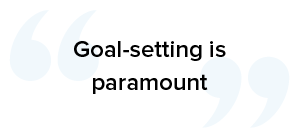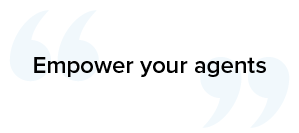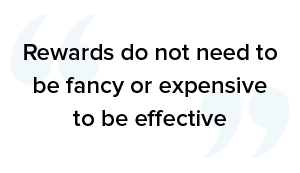This blog has been updated in April 2019
Companies that carefully gather and assess call center data have more effective call centers that are not viewed as cost centers but as growth-driving centers. Once leadership understands that measurement matters, there needs to be agreement on what to measure and then what to do with that collected data.There are many metrics available in the typical call center, divided into production metrics, e.g. ASA, AWT, calls handled, and qualitative measures, e.g. customer sentiment, quality assessment and agent satisfaction. Scorebuddy is designed to shine a light on the qualitative, as well as track those quantitative metrics that some find relevant. We suggest you consider a few important things as you determine which metrics are most important to the success of your call center.
This blog is part of a series on improving the performance and quality of call centers.
Click on the links below to see our other blogs in the series:
Goal-setting is paramount. Whether that goal is to increase NPS, reduce client churn, increase first call resolution, or all of the above, you will quickly find that most roads lead directly to customer satisfaction.
Companies don’t have it easy. Depending on the product or service, there can be many touch points on the buyers’ journey; and to achieve customer satisfaction and earn customer loyalty, the call center is a key touch point where relationships are reinforced or broken. The customer experience does not end, but merely begins, at the point-of-sale. Customers may need assistance from the initial purchase, to support on how to use the product, returns and all the way to renewals. From the company perspective, there are always upsell opportunities, increasing lifetime customer values, and long-term corporate reputations to consider.
The customer experience does not end, but merely begins, at the point-of-sale. Customers may need assistance from the initial purchase, to support on how to use the product, returns and all the way to renewals. From the company perspective, there are always upsell opportunities, increasing lifetime customer values, and long-term corporate reputations to consider.
McKinsey & Company recently reported: “Today’s customers do not only buy products and services — more and more, their purchase decisions revolve around buying into an idea and an experience.”
And so call center agents, the people on the front lines of your organization who interact one-on-one with your customers on a daily basis, must absolutely facilitate this experience. In fact, you could argue that because the agents are conveying this experience on a daily basis, they should be the masters of the customer experience, pushing it farther. Getting this right requires call center agents who are selected for and trained with the emotional intelligence to meet customers where they are. Agents must be able to engage with and respond to clients in a spontaneous, but appropriate way that is preferably unscripted.
Through customer-oriented behavior that includes a mix of empathy, anticipation, education, and personal anecdotes, call center agents can give customer satisfaction a big boost.
Scorebuddy is designed to gather rich data at this key moment along the customer journey. Through the use of scorecards for QA in the contact center, these seemingly intangible data points may be collected, measured, and managed in a way that highlights the path to reaching your goals.

Designing a quality assurance scorecard that maps to your company goals and the customers’ expectations will organize data that results from the scoring process and doesn't just focus on the outcomes. A well thought out design will measure soft skills and emotional connections that make an OK call into an awesome call. Tagging the score with coaching comments and the root cause underlying poor outcomes, will allow you to know where you need change behaviors or apply coaching and training.
Here are some pro tips for call center agent performance scorecard success:
Know what you’re aiming to assess and be clear about it with your agent. There is no need here for mystery.
Don’t go at it alone. Be sure you know what the agent is thinking and why.
Rigidity will not help when measuring such intangible data. Goal-setting counts, but it is important to be flexible as you learn more.
Examine trends that reveal key insights to share with leadership and call center agents alike.
The #1 way to encourage call center agents to exemplify customer-oriented behavior is to include them in training sessions. Yes, train your team, but also be sure they understand why they are being trained. You know that communication between your employees and your customers is essential for customer satisfaction. But do you also know that the same level of communication is necessary between your leadership team and call center agents?
You know that communication between your employees and your customers is essential for customer satisfaction. But do you also know that the same level of communication is necessary between your leadership team and call center agents?
Empower your agents to adopt self-scoring processes. Invite them to develop scorecard questions they deem important. Let them see their quality monitoring scorecard results ahead of reviews so there is ample time to learn, grow, and adjust their customer-oriented behaviors. Use call center agent performance scorecard data to avoid disappointing surprises so that improvements may be made in real-time, on the very next call. And finally, when succeeding, reward your call center agents

Ultimately, how your organization chooses to reward its employees is entirely up to you. What we can tell you is that rewards do make a difference in the personal and professional lives of your employees. Happier employees translate to happier customers, so keeping your employees happy is always a good idea.
Quality monitoring scorecards help track which individuals or teams are outperforming, so it is easy to determine who or which group to reward for overachievement. For example, reward the most improved or highest scores in a particular week. Buy the highest daily achiever a cup of coffee or a gift card for a tank of gas. Rewards do not need to be fancy or expensive to be effective. Contests can be fun. Consider engaging your agents in some friendly competition or a more collaborative team-oriented game.
For example, reward the most improved or highest scores in a particular week. Buy the highest daily achiever a cup of coffee or a gift card for a tank of gas. Rewards do not need to be fancy or expensive to be effective. Contests can be fun. Consider engaging your agents in some friendly competition or a more collaborative team-oriented game.
The quality monitoring scorecards you design, utilize, and implement can offer tremendous value to your call center. A call center quality scorecard provides a grading rubric for your agents to use as a guide, and is a valuable coaching tool. If your agents’ interactions meet all the criteria on the card, your agents will likely be more successful, and your customer satisfaction will improve.
Most customer interactions follow a certain flow. When your agents have a set of guidelines to follow and they use those guidelines during their calls, it enables them to get to the heart of the customer’s issue; as a result, customer satisfaction goes up and customer experience is improved.
Agents value call center quality scorecards because they provide clear guidelines, and agents will merit high marks for their performance if they follow the criteria they’re trained to follow. If they exhibit the right behaviors and attitudes, no matter how irate the customer may be, the agent will be prepared to help the customer, diffuse the situation, and provide a pleasant experience.
Providing a scorecard framework will alleviate work stress and anxiety for your agents by clearly outlining the criteria necessary for their success and making them feel prepared to succeed in their role. It also makes it easier for managers and compliance officers to pinpoint exactly which areas need improvement; to make the call center more efficient and successful.
If you’d like to learn more about scorecards and how they can help grow your business by enhancing and supporting customer-oriented behavior, drop us a line.